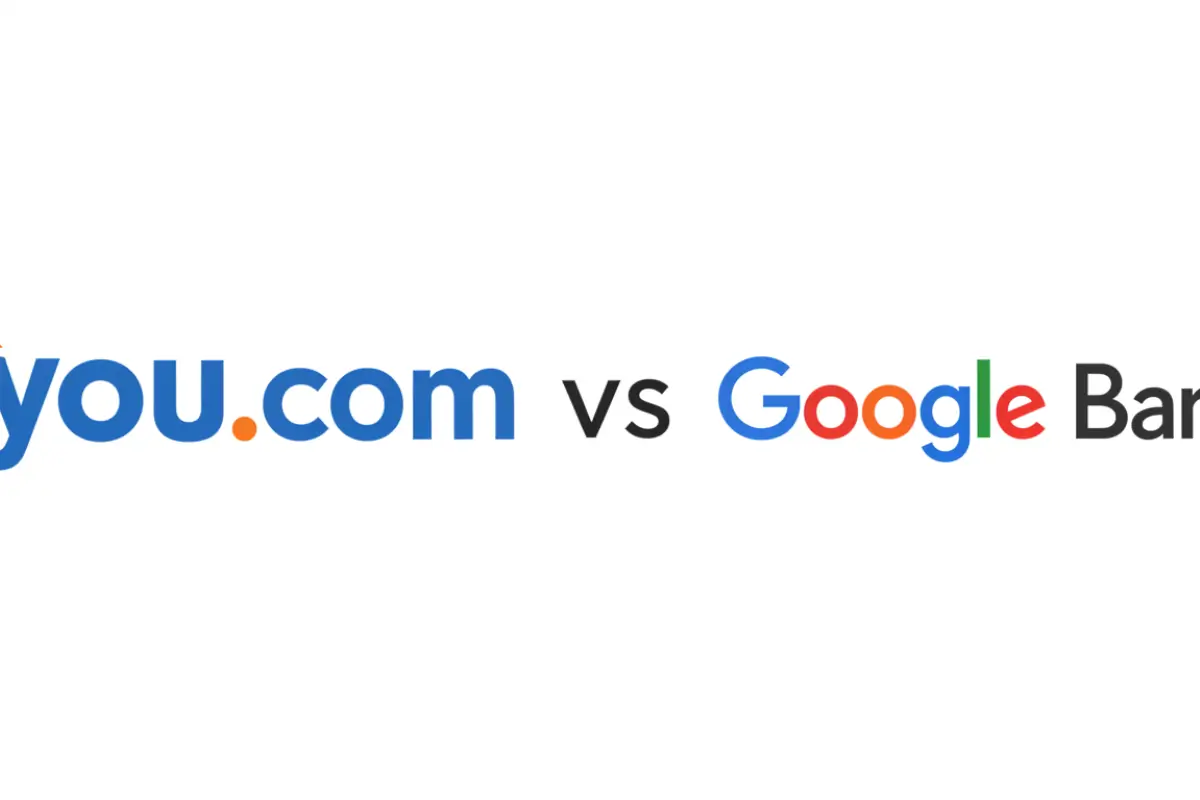You.com vs Google Bard: Which AI Search is Smarter?
- March 15, 2025
- 0
Well, since you are, I confess that I decided to do this topic out of the blue after a simple Google search, and I thought which search engine
Well, since you are, I confess that I decided to do this topic out of the blue after a simple Google search, and I thought which search engine

Well, since you are, I confess that I decided to do this topic out of the blue after a simple Google search, and I thought which search engine is better, you.com or Google’s Google Bard, and well, it seems like it’s going to be a run over by Google’s artificial intelligence, isn’t it?
But no, that’s not the answer. In fact, it was so balanced that I can say right now, whichever one you think is better, you’re right, and I’d say more, it’s a very balanced duel.
Both claim to offer a smarter, more intuitive way of searching the web, but which one actually delivers the best results?
As someone who spends countless hours researching technology, AI, and gaming, I’ve put both to the test. If you’ve ever wondered which AI search engine is truly the best, buckle up—this article is for you! 🚀

Traditional search engines like Google and Bing work by indexing web pages and ranking them based on keywords, backlinks, and user engagement.
AI-powered search engines, on the other hand, take things to the next level by using machine learning and natural language processing to understand user intent and deliver more accurate, personalized, and interactive responses.
Some of the biggest advantages of AI search engines include:
Now, let’s compare You.com and Google Bard head-to-head. 🥊
When it comes to accuracy, Google Bard has an edge because it taps into Google’s vast search database.
This means it provides highly relevant, up-to-date results that align with what users expect from Google Search.
However, Bard sometimes struggles with generating overly generic or outdated answers since it doesn’t always provide direct links to sources.
You.com, on the other hand, prides itself on offering customizable search experiences, allowing users to choose from different sources and AI models.
It provides a mix of summarized AI responses and direct links to sources, making it great for research-heavy tasks where citations matter.
Winner: Google Bard (slightly more reliable results, but You.com offers more transparency).
If you love tweaking settings and having control over your search experience, You.com wins this round. It allows you to filter results using different “modes” such as:
Google Bard is more streamlined but lacks these customization features. Instead, it offers a clean and minimalist experience, making it easier for casual users.
Winner: You.com (better for power users, while Bard is simpler and cleaner).

Google Bard and You.com both have chatbot functionalities, but Bard is deeply integrated with Google’s ecosystem.
This means it can pull information from Gmail, Google Docs, and other Google services, making it ideal for users already invested in the Google ecosystem.
Meanwhile, You.com offers a more independent approach. It combines multiple AI models (including OpenAI’s GPT) to generate responses, making it more flexible when it comes to conversational AI.
Winner: Tie (Bard is better for Google users, You.com is better for independent research).
Winner: You.com (slightly faster performance, but Bard is more consistent).
Privacy is a big deal. Google Bard collects user data to improve its responses, but this can be a concern for privacy-conscious users.
You.com, on the other hand, emphasizes privacy by allowing users to search without tracking.
Winner: You.com (better privacy policies).

| Feature | Winner |
|---|---|
| Search Accuracy & Relevance | Google Bard ✅ |
| Customization & User Control | You.com ✅ |
| Chatbot & AI Features | Tie 🤝 |
| Speed & Performance | You.com ✅ |
| Privacy & Security | You.com ✅ |
Both search engines have their strengths and weaknesses, but if you’re looking for:
At the end of the day, it all depends on what you need. If you’re just browsing casually, Bard might be the best pick.
But if you’re a tech enthusiast, researcher, or someone who values privacy, You.com might be your new go-to. 🔥
▶ Which AI search engine is better for research?
▶ Is Google Bard better than ChatGPT?
▶ Does You.com track your searches?
▶ Can I use both You.com and Google Bard?

At the end of the day, both You.com and Google Bard are good AI search engines. If you’re looking for a privacy-focused, customizable experience, You.com is a fantastic option. If you want a familiar and integrated tool with Google’s power, Bard is the way to go.
Well, that’s it, there’s not much to say, just the fact that I was very surprised, like really surprised.
What do you think? Which one do you prefer? Drop a comment below! 👇 And if you found this helpful, don’t forget to share! 🚀